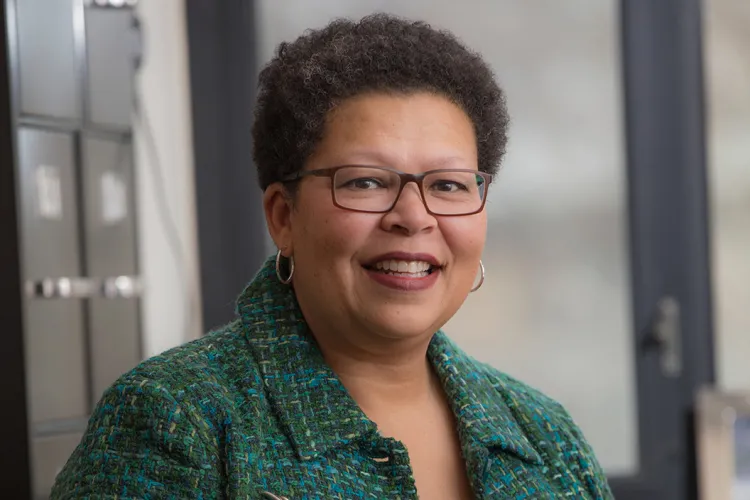Provost Sarah Willie-LeBreton Discusses Rooting out Racism in the Suburbs

Last week, Provost and Dean of Faculty and Professor of Sociology Sarah Willie-LeBreton was a guest speaker on the KYW Newsradio podcast Flashpoint for a panel discussion about anti-racism efforts in suburban and small-town America. She was joined by Lindsay Wetmore-Arkader, a medical anthropologist who organized a solidarity rally to support Black Lives Matter and Kevin Leven, co-leader of the Bucks County Anti-Racism Coalition.
Willie-LeBreton opened the discussion by providing demographic context on the Philadelphia suburbs and why Black people are less represented in those areas.
“It’s important to appreciate that there was ‘white flight’ in the late 60s and early 70s and as more and more African-Americans moved to Philadelphia, as they did to many cities in the south and the north, whites moved out of those cities,” she says.
“The federal government also provided mortgage help for white families in ways that it did not for African-American families so there was an incentive for whites to begin buying houses, which were more readily available in the suburbs,” she says, regarding the concept of “redlining” by which people of color were denied economic and social mobility.
Willie-LeBreton explains that demographic trends have brought more diversity to “first ring” Philadelphia suburbs such as Upper Darby and Yeadon, but not to the same extent in areas like Bucks and Montgomery counties.
Now more than ever, building partnerships across communities is crucial for anti-racism movements.
“People are hungry for a sense of community and to make solidarity with other people,” she says. “We need to recognize that each of us is in a vulnerable position at one time or another in our lives because of the groups to which we belong.”
Willie-LeBreton concludes the segment by urging white participation in these anti-racism movements, especially in areas where there are fewer people of color.
“There is no substitute for white people having these conversations with each other. We have to have really deep, really hard, ongoing conversations…there’s no shortcut for it. Whoever can participate is welcome at the table.”
Listen to the full podcast below:



